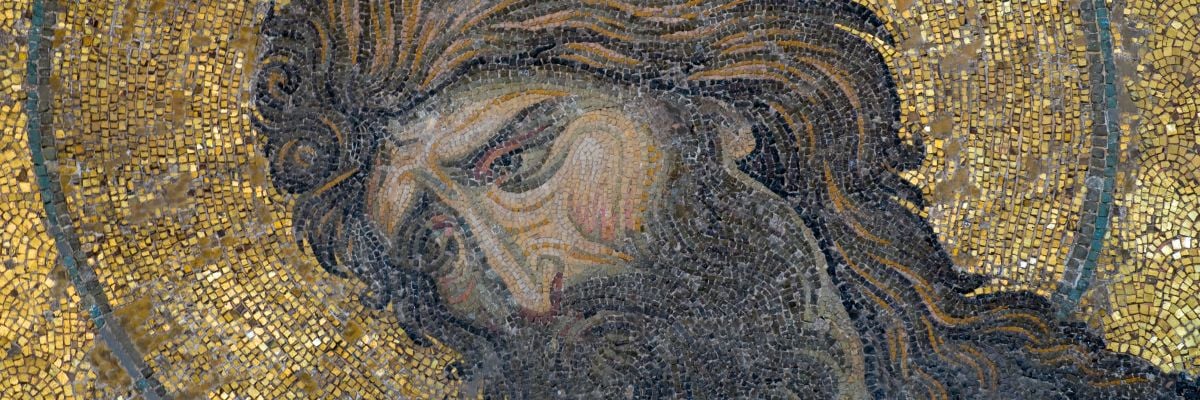
Homily for Gaudete Sunday, 2019
“Are you the one who is to come, or should we look for another?”
— Matt. 11:3
Well, I was already writing a homily on joy, which is the permanent theme for this third Sunday of Advent, and we hear in the entrance antiphon (or introit) St. Paul’s injunction, “Rejoice in the Lord always, again I say rejoice,” and the sacred ministers don the cheerful rose vestments of immediate expectation of the Savior’s birth when my joyful expectation felt the painful impact of a fact that seems to be a regular part of the Church’s homiletic life these days.
It seems that preachers are allowed to say just about anything that occurs to them when reading the text of the Sunday’s reading, without any reference or sense of the Church’s long and authoritative tradition of Scripture study, especially when they plan to offer an “insight” that seems a bit clever or shocking and has never been seconded by any saint or pope or Father or Doctor. The sources of these insights are usually subjective psychological interpretations or opinions from the prevailing culture.
Of course, the latter are not bad at all in themselves and can be very useful in homilies, especially in providing examples and applications; but when they are the only basis for a homily, and one that turns out to question the very foundations of the Christian faith, well, this is a very serious matter indeed, and I am afraid a not infrequent one.
Now, I could write you a story called “The Grinch Who Stole Gaudete,” but since I have already departed a great deal from my usual tone, I will spare you things like that, at least for the present.
It seems—according to an introduction to today’s liturgy found in a very widely used missalette—that St. John the Baptist was offended by Our Lord’s teaching because it was not what he had foretold. Even more, this supposed contradiction perhaps meant that he should expect another teacher to come, since Jesus, it seems, had erred! The conclusion we would have to draw, sitting in the pew, is that John was not a true prophet of the Savior of Israel because he had erred in his teaching.
Fortunately, this was not the intention of this little meditation, which was meant merely as a little psycho-moralization on not imposing our expectations on others. Now, in the Gospel itself, it is clear that the Savior has the highest esteem for John the Baptist, and he praises him more than anyone else had ever been praised in Scripture, short of God and his Christ and Christ’s mother. They were not having anything like tension in their relationship. Quite the contrary.
What is going on here? Why is the Baptist asking this question of Our Lord if he already had (as is shown abundantly in earlier passages of the Gospels) the knowledge of his being the Christ? Very simply, there was tension—but it was between some of the disciples of John and the disciples of Christ. The tension was mostly about issues of austerity and the purity needed for engaging in Jewish worship. Both rabbis wanted their followers to be united.
As John was readying to depart this world, he wanted his followers to draw closer to Christ, and so, using good rabbinic technique, he sent them to inquire with a question to which he knew the answer but that he wanted them to hear from Christ so that they would have greater regard for his authority as a teacher—indeed the teacher in Israel, the promised Messiah. Then John would have seconded Christ’s judgment.
This explanation that St. Augustine, St. John Chrysostom, St. Cyril of Alexandria, and St. Thomas Aquinas gave. It does not require us to ascribe ignorance or moral imperfection to Christ or to John, his beloved friend. It just requires that we interpret the text from the standpoint of what we know from our revealed religion and the customs of Our Lord’s time.
Far too often, the most precious mysteries of faith are reduced to the notion that Jesus and Mary and the Baptist and the apostles after Pentecost were “just like us.” Hardly. They were all humans and so had human qualities and personalities, but they were the divinely sent messengers or actors of the mysteries of faith, and, in the case of the first three, from their mothers’ wombs! Maybe the takeaway from this is instead that none of us are meant to be just plain ordinary, but all of us are meant to be saints.
So enough of homilies teaching that St. Joseph thought Mary had been unfaithful to their betrothal (read St. Bernard on this point) or that the adolescent Savior was just having a natural episode of rebelliousness when his parents couldn’t find him for three days, or that Jesus went overboard in his violent expulsion of the money-changers, or that he doubted his divine sonship on the cross, and so on. There is so much in our tradition to answer our questions that we are right to suspect the reasoning of anyone, whether scholar or amateur, whose use of Scripture does not show traces of contact with the Fathers and Doctors of the Church.
In the kingdom of heaven, after the general resurrection, we will each shine forth made in God’s image, body and soul, and the deep mysteries will be revealed as the most truly real and human things about us all along. And for the skeptics, I add a little-known teaching of St. John XXIII: that John the Baptist rose from the dead and was among those dead who arose and went into Jerusalem at the time of our Lord’s Passion, something, as he says, that “we may devoutly believe.” Not a dogma, like the Resurrection, but a pious belief that shows a heart ready to accept the fullness of our religion and the many, many things that will be revealed on that last day.
Happy Advent! Let us pray, “Come quickly, Lord Jesus!”



